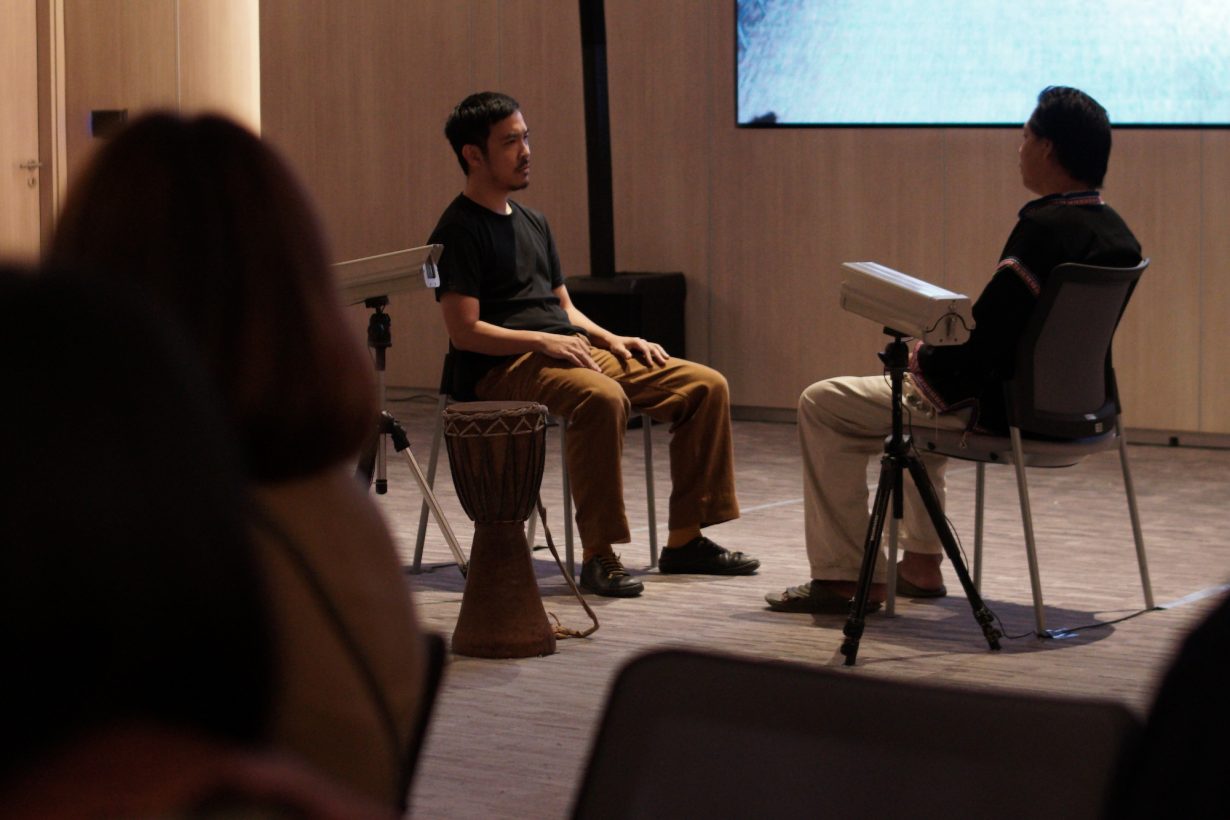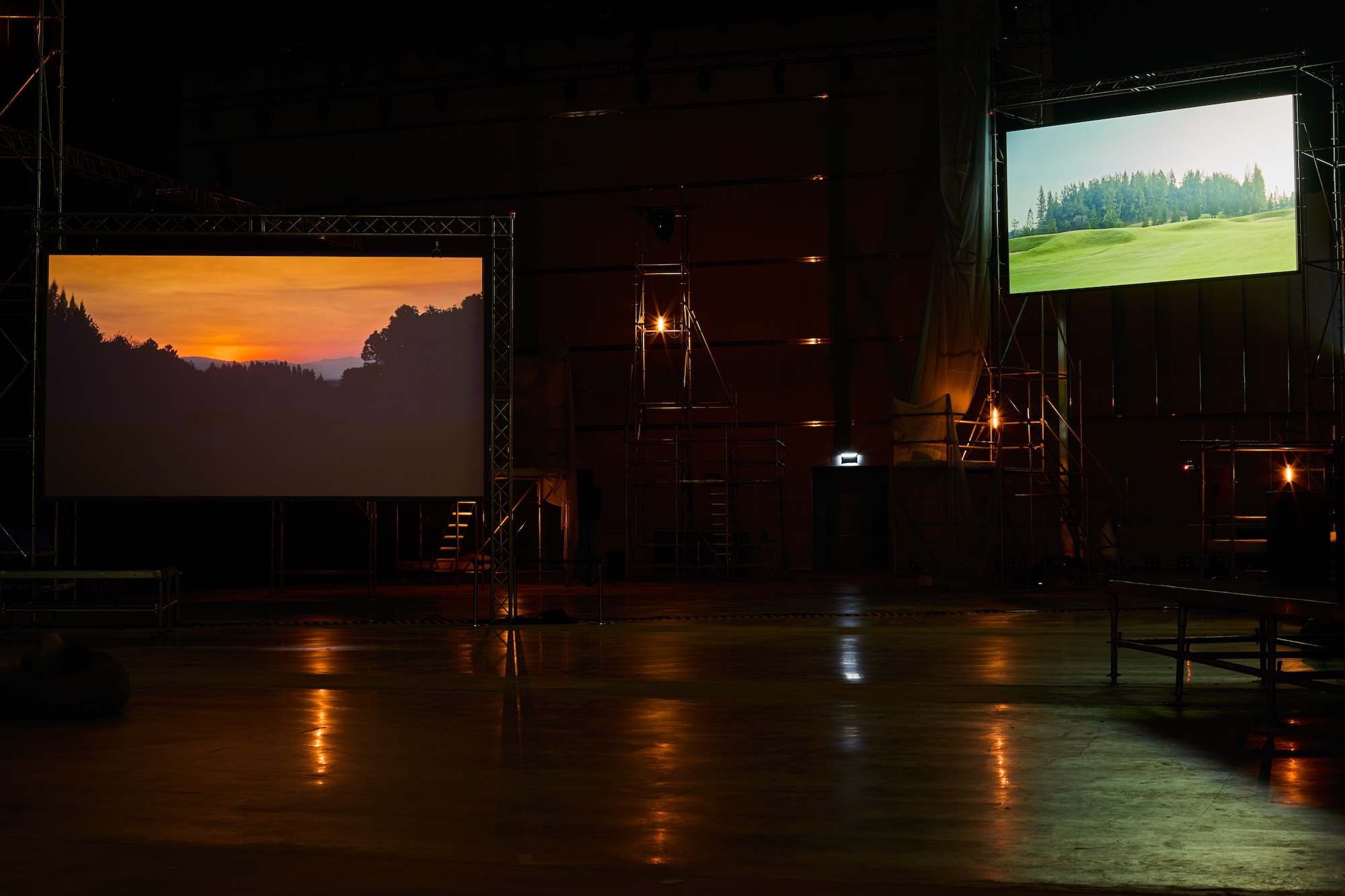After a 13-year hiatus, BEFF returns as a collective display of artistic might
In February 1999, the avant-garde American filmmaker Bruce Baillie sent a letter encouraging a promising film graduate named Apichatpong Weerasethakul to persevere. ‘We must steer the young Asian film/video artists away from the commercial gloss, the superficial images, attitudes, aspirations,’ he wrote. Then, in December that same year, an op-ed suggesting this battle was being lost appeared in the catalogue for the 2nd Bangkok Experimental Film Festival (which included a retrospective of Baillie’s work). ‘The point is that only a few students know the importance of experimental films,’ Panu Aree, a Thai film producer and lecturer, lamented.
Found in an archive arranged on freestanding scaffolding located in a corner of a foyer (that also contains a merchandise market and bookstore), Baillie’s call to arms and Aree’s pessimism struck me, on day one of the 7th Bangkok Experimental Film Festival (BEFF7), as small reminders of what Weerasethakul and his fellow Art Institute of Chicago alumni, curator Gridthiya Gaweewong, were reacting against and trying to achieve when they cofounded BEFF7 in 1997.
The nine schedule-packed days of BEFF7 that ensued were maximalist proof of how far things have come. With installations, workshops and live performances conceived by Thai filmmakers buttressing the screening of over 120 films, this edition (the first after a 13-year hiatus) felt less like an attempt to proselytise for aesthetic revolt within the cosmopolitan Thai context (as early editions did through the curating of esoteric European and American canons) than it did a collective display of might. Or to appropriate this edition’s tagline, a celebration of a film scene’s figurative journey from ‘nowhere to somewhere’ – a journey that has now led BEFF to the coalface of expanded cinema, beyond the formal confines of the camera’s frame.
During documentary-maker Nottapon Boonprakob’s performance piece Echoes of the Beating Drum (2025), for example, an audience gathered in one of BEFF7’s three theatres and watched themselves being observed by CCTV cameras while a live conversation, ongoing behind them, unfolded between Boonprakob and Maitree Chamroensuksakul, a member of Thailand’s Lahu hill tribe minority. This mediated point of view framed the discussion cum memorialisation of the life of Lahu activist Chaiyaphum Pasae, who was shot dead at a military checkpoint in 2017 (after which the CCTV footage capturing the killing went missing), prompting viewers to question the real version of events.
BEFF7’s spectrum of audiovisual experimentation and theatrical scenography also stretched into the realm of VR, thanks to the sold-out Bangkok debut of Weerasethakul’s A Conversation with the Sun (2022). Inside the event hall hosting it, the experience – sweeping us through the bowels of a cave, triggering an atavistic fear of deep time and impermanence – entailed walking in a room alongside other participants, that ended, after headsets had been removed, with everyone lying down in front of footage of people slumbering. The implication being that the phenomenological intensity of the experience would lead us to follow suit.

Back in the screening theatres, programmes pulling in film and video art practices from many directions – some selected by curators involved in past BEFFs, including David Teh, May Adadol Ingawanij and George Clark – were joined by those who sought to historicise experimental film’s evolution in Thailand. One highlight in this regard was the Thai Film Archive’s retrospective of female filmmaker Sasithorn Ariyavicha, whose 70-minute Birth of the Seanéma (2004) – a majestic procession of silent black-and-white imagery centred on a mythic city – still lingers in the memory. Another programme, ‘Memorialising BEFF’, comprising films from early editions selected by Weerasethakul and Gaweewong, gave a sense of the transnational cinephilia their studies in the US sparked.
The challenges of the country’s sociopolitical conditions and film industry came up in one talk. But struggle was a mere subplot: a sense of kinship and mutual appreciation shone through in the conversations and collaborations. For me, this atmosphere of community cohesion, of a big family coming together, reached a visceral level. Nearby the talk space was an open-plan twilight zone where three screens stood amid tie-dyed cushions and islands of scaffolding, some fitted with beds and amber lights that slowly rose and fell above them.
A couple of one-off events were staged in this cavelike space (including on the opening night, when archive images played as Tilda Swinton briefly reprised her woman-pretending-to-nap live performance in one of the beds, then awoke for a conversation with Weerasethakul). But for the remainder of BEFF7, COSMORAMA (2025) – a suite of five new moving-image commissions curated by Mary Pansanga – looped on the three screens as people explored, lounged or dozed. This installation was, on one level, an immersive showcase of emerging, mostly Thai talent. But with the score for Weerasethakul’s A Conversation… (composed by the late Ryuichi Sakamoto) bleeding into this space, gifting a soundtrack of twinkling and buzzing atmospheres to the short films, COSMORAMA also felt like a spatialisation of a sphere of influence, or spiritual bloodline, that stretches back to the late 1990s. The lifeforce of Thailand’s arthouse lodestar is still seeping into the collective subconscious, still steering young artists away from the commercial gloss, still encouraging them to dream, and dream big.
7th Bangkok Experimental Film Festival: Nowhere Somewhere, One Bangkok Forum, 25 January – 2 February
From the Spring 2025 issue of ArtReview Asia – get your copy.
